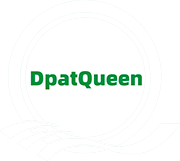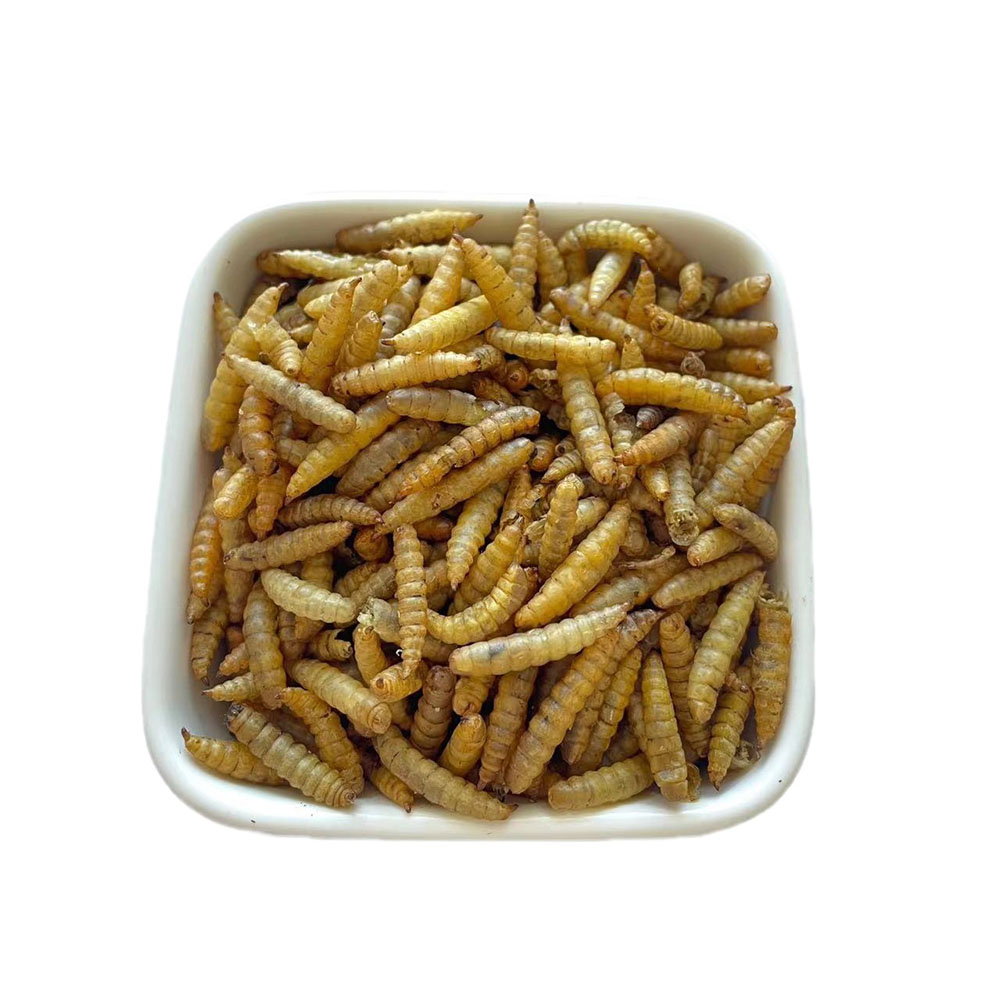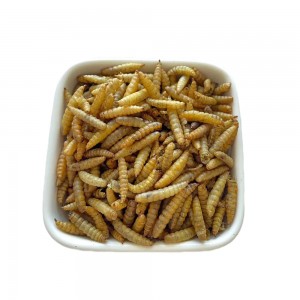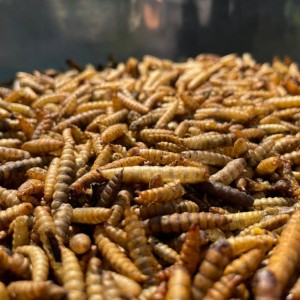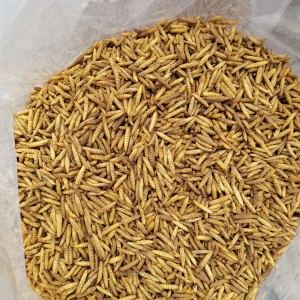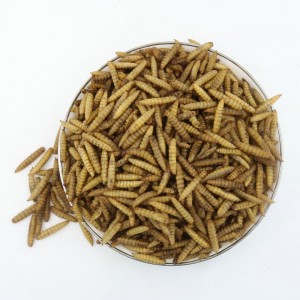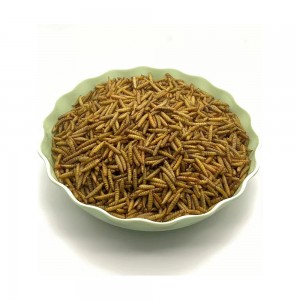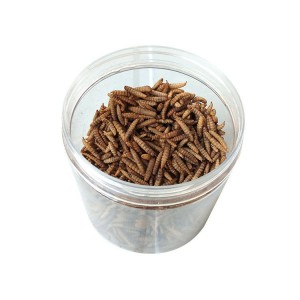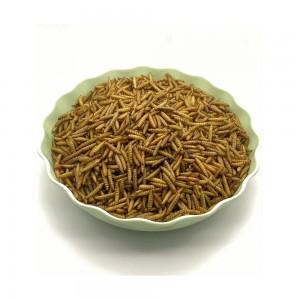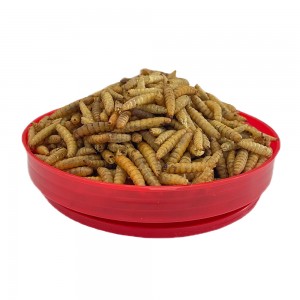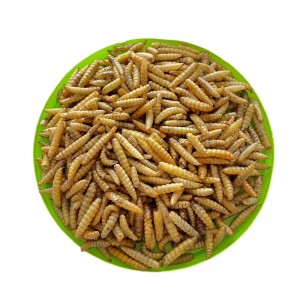- Fill the hunger gap in Winter
- Also can be used year round
- Provides the protein birds need for laying feathers, feeding their young and growth
Place on a feeder or table or even on the ground.
Offer little and often in small quantities. It may take some time for some birds to take to the snack but persevere - they will come round eventually!
Can be mixed with other bird feed for a highly nutritious and balanced snack.
Store in a cool and dry place.
*Please be aware that this product may contain nuts*
From 2022, pig and poultry farmers in the EU will be able to feed their livestock purpose-bred insects, following the European Commission’s changes to the feed regulations. This means that farmers will be allowed to use processed animal proteins (PAPs) and insects to feed non-ruminant animals including swine, poultry and horses.
Pigs and poultry are the world’s biggest consumers of animal feed. In 2020, they consumed 260.9 million and 307.3 million tonnes respectively, compared with 115.4 million and 41 million for beef and fish. Most of this feed is made from soya, cultivation of which is one of the leading causes of deforestation around the world, notably in Brazil and the Amazon rainforest. Piglets are also fed on fish meal, which encourages overfishing.
To reduce this unsustainable supply, the EU has encouraged the use of alternative, plant-based proteins, such as the lupin bean, field bean and alfalfa. The licensing of insect proteins in pig and poultry feed represents a further step in the development of sustainable EU feed.
